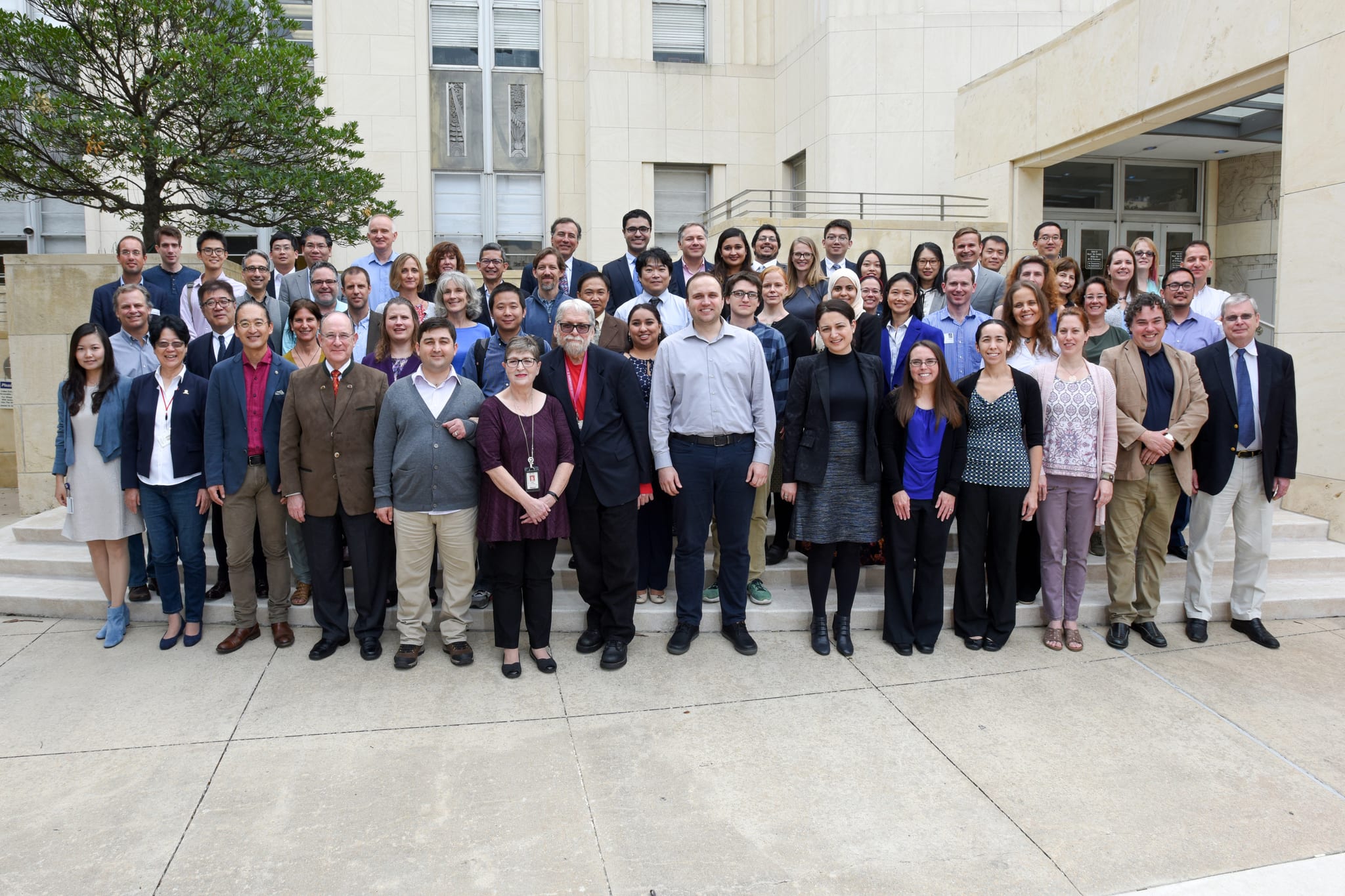Posted By: Sara Cullinan, PhD, Deputy Editor, AJHG
Each month, the editors of The American Journal of Human Genetics interview an author of a recently published paper. This month we check in with Jennifer Posey (@poseypod) and Jim Lupski to discuss their paper “Paralog Studies Augment Gene Discovery: DDX and DHX Genes.”

AJHG: What prompted you to start working on this project?
Jenn and Jim: This project developed from several of the lessons we’ve learned through our work in the Baylor Hopkins Center for Mendelian Genomics. In collaboration with our Drosophila colleagues (Hugo Bellen, Shinya Yamamoto, Michael Wangler), we had learned that Drosophila genes with multiple human orthologs are 8-fold more likely to be associated with Mendelian conditions in humans (Yamamoto S, et al. Cell (2014)159:200-214).
Other key collaborations led to the elucidation of DHX30 and DDX3X as genes associated with neurodevelopmental disorders (Lessel D, et al. Am J Hum Genet (2017)101:716-724; Wang X, et al. Ann Clin Transl Neurol (2018)5:1277-1285) bringing the DExD/H-box RNA helicase gene family into focus as a candidate set of paralogous genes with which we could test our hypothesis that a paralog-focused gene-first approach would reveal novel candidate disease genes associated with overlapping phenotypic features.
AJHG: What about this paper/project most excites you?
Jenn & Jim: Many of our research participants were first recognized clinically as having a rare condition with clinical features that were molecularly unexplained. This focus on clinical features – or phenotypes – can often drive ‘phenotype-focused’ research analyses to identify relevant genes. While successful as an approach to novel disease gene discovery, the richness of clinical features, and the clinical variability amongst individuals sharing the same causative gene, can be lost.
Turning this approach on its head, we instead took a gene-first approach to interrogate a large cohort of participants with varied phenotypes to objectively identify clinical features associated with rare variants in DExD/H-box RNA helicase genes. We were struck by the observation that both clinical features common to a majority of individuals with rare variants in these genes (neurodevelopmental delay), as well as unique features that were observed in only a subset of individuals (genitourinary disease), were revealed by this approach.
We were also pleased to see the involvement of the international community facilitated by GeneMatcher (https://www.genematcher.org/), and the matching of multiple stakeholders, including families, physicians, and researchers interested in this gene family. GeneMatcher also led to another successful collaboration with our colleagues at the University of Washington Center for Mendelian Genomics and fomented gene discovery.
AJHG: Thinking about the bigger picture, what implications do you see from this work for the larger human genetics community?
Jen & Jim: A gene-first approach and family-based genomics is turning out to be a very powerful way to gain an entry point into disease biology, and at the same time, stimulate molecular diagnoses for families.
AJHG: What advice do you have for trainees/young scientists?
Jenn & Jim: Work hard and diligently to understand disease biology in human genetics. Collaboration and international team-building benefits all stakeholders.
AJHG: And for fun, tell us something about your life outside of the lab.
Jenn & Jim: Life outside the lab is enriched by the colleagues and collaborators and families with whom we are so fortunate to spend time.
There is a curious parallel between the inspiration derived from art and artists’ expressions of their individuality and the drive we share to understand how genetics and genomics impacts each individual’s personal health. Tableside conversations become even more interesting with international travel, good foods from all over the world, and shared experiences.
Jennifer Posey, MD, PhD is an Assistant Professor of Molecular and Human Genetics at Baylor College of Medicine. James Lupski, MD, PhD, DSc (hon) is the Cullen Professor of Molecular and Human Genetics and Professor of Pediatrics at Baylor College of Medicine. A longtime ASHG member, he was the recipient of the 2002 Curt Stern Award and the 2018 McKusick Leadership Award.
